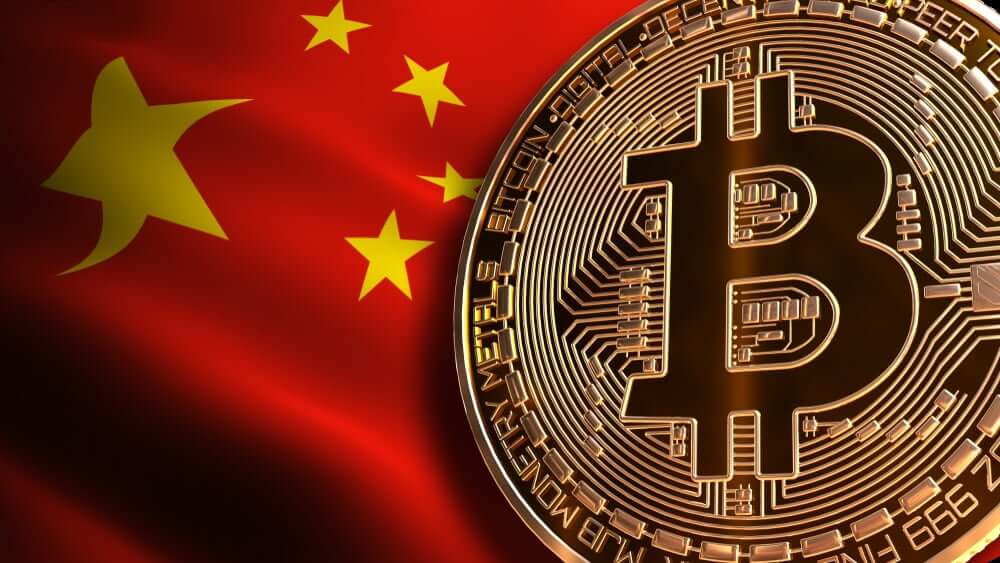Should China Rethink Its Strict Crypto Ban as the U.S. Embraces Digital Assets?
01.10.2024 17:15 1 min. read Alexander Zdravkov
Zhu Guangyao urged the government to reconsider its strict crypto ban, especially as the US adopts more favourable policies towards digital assets.
Speaking at a forum in Beijing, Zhu highlighted the importance of cryptocurrencies to China’s digital economy, noting that the risks associated with them – such as volatility and illegal use – can be managed through regulations rather than an outright ban.
China initially cracked down on cryptocurrencies in 2017, banning initial coin offerings (ICOs) and shutting down exchanges. By 2021, restrictions were further tightened by banning Bitcoin mining and outlawing crypto-related activities.
However, Zhu argues that these measures have driven crypto trading underground, creating an unregulated space.
Meanwhile, Hong Kong is taking a different approach, seeking to become a global hub for digital assets with Beijing’s tacit support, having recently approved crypto exchange-traded funds (ETFs).
China now faces a critical decision: whether to maintain its restrictive stance or accept the growing global importance of cryptocurrencies.
-
1
Bitcoin: What to Expect After Hitting a New All-time High
10.07.2025 14:00 2 min. read -
2
Peter Brandt Issues Cautious Bitcoin Warning Despite Bullish Positioning
10.07.2025 20:00 2 min. read -
3
Vanguard Now Owns 8% of Michael Saylor’s Strategy, Despite Calling BTC ‘Worthless’
15.07.2025 17:09 2 min. read -
4
Standard Chartered Becomes First Global Bank to Launch Bitcoin and Ethereum Spot Trading
15.07.2025 11:00 1 min. read -
5
What’s The Real Reason Behind Bitcoin’s Surge? Analyst Company Explains
12.07.2025 12:00 2 min. read
Ethereum Spot ETFs Dwarf Bitcoin with $1.85B Inflows: Utility Season in Full Swing
Ethereum is rapidly emerging as the institutional favorite, with new ETF inflow data suggesting a seismic shift in investor focus away from Bitcoin.
Ethereum Flashes Golden Cross Against Bitcoin: Will History Repeat?
Ethereum (ETH) has just triggered a golden cross against Bitcoin (BTC)—a technical pattern that has historically preceded massive altcoin rallies.
Bitcoin Banana Chart Gains Traction as Peter Brandt Revisits Parabolic Trend
Veteran trader Peter Brandt has reignited discussion around Bitcoin’s long-term parabolic trajectory by sharing an updated version of what he now calls the “Bitcoin Banana.”
Global Money Flow Rising: Bitcoin Price Mirrors Every Move
Bitcoin is once again mirroring global liquidity trends—and that could have major implications in the days ahead.
-
1
Bitcoin: What to Expect After Hitting a New All-time High
10.07.2025 14:00 2 min. read -
2
Peter Brandt Issues Cautious Bitcoin Warning Despite Bullish Positioning
10.07.2025 20:00 2 min. read -
3
Vanguard Now Owns 8% of Michael Saylor’s Strategy, Despite Calling BTC ‘Worthless’
15.07.2025 17:09 2 min. read -
4
Standard Chartered Becomes First Global Bank to Launch Bitcoin and Ethereum Spot Trading
15.07.2025 11:00 1 min. read -
5
What’s The Real Reason Behind Bitcoin’s Surge? Analyst Company Explains
12.07.2025 12:00 2 min. read

